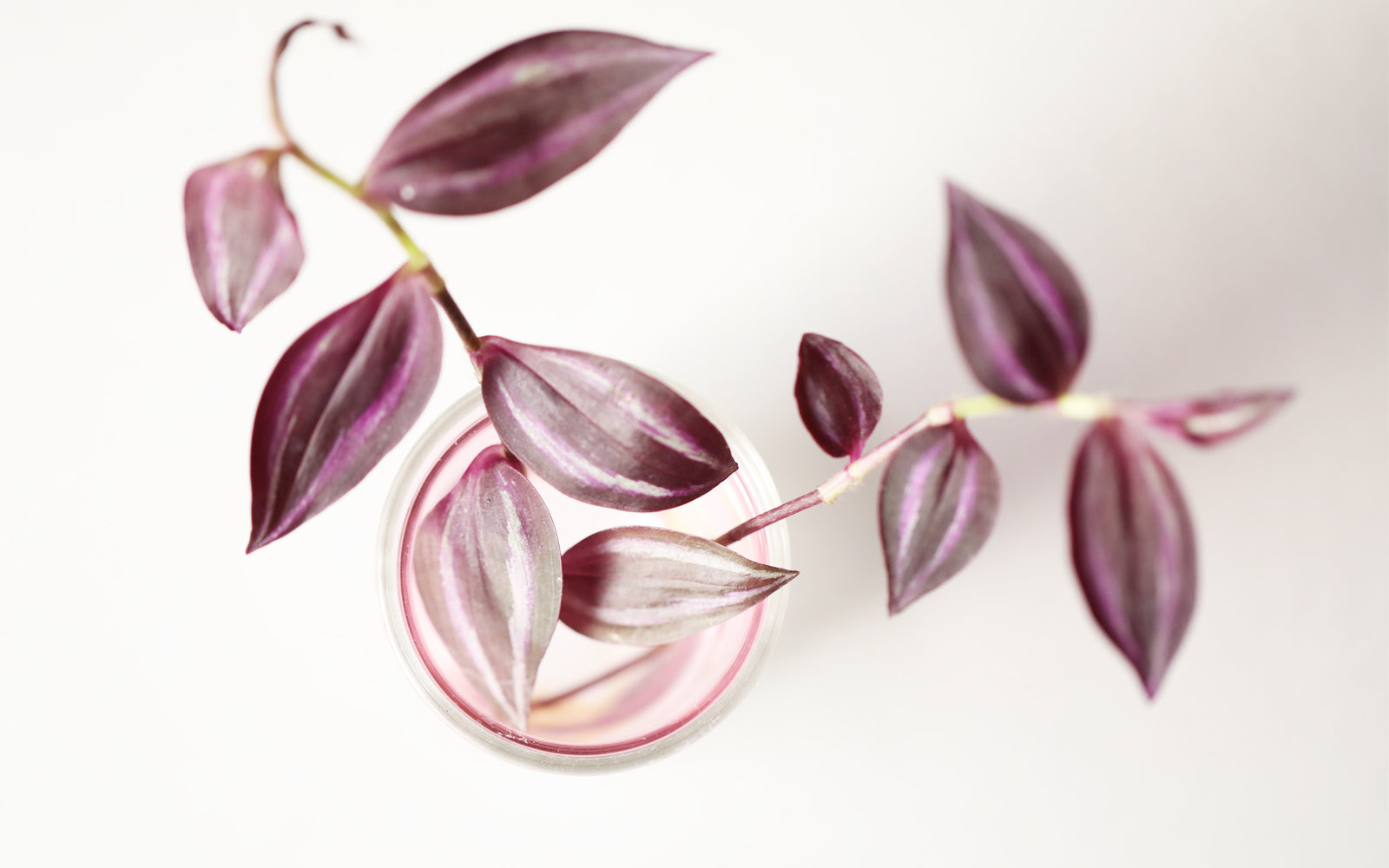
Flowers and greenery have had a renaissance in the past few years and it's a trend we love at Studio About. Plants provide a better indoor climate and green is, as the saying goes, good for the eyes.
In the picture we have styled our small vases from The Standing Bubble collection with cuttings. From the left it is one Monstera Adansonii and the others are both varieties of Tradescantia, also called Wandering Jew.

CHOOSE THE PLANT THAT SUITS YOU
However, in a busy everyday life it is important to choose plants that suit one's temperament, and to choose a plant that one can take care of.
In this video, we have chosen to show you how to propagate the climbing variety easily and simply . Monstera adansonii .
MONSTER
This plant species exists in around 50 varieties and originates from the tropical rainforest. Exactly this type of plant requires minimal care and was therefore also known as the "blogger plant", as it is simple and easy to care for.
You can control its growth by cutting off new shoots. These shoots can then be put in water or soil and become a new plant.
The version we show in the video is a Monstera Adansonii , although we accidentally call it Monstera Obliqua – Monstera Obliqua is a rare species of M onstera and at the very expensive end of houseplants.
If you would like a fast-growing plant to hang under the ceiling or stand on a shelf, you should see more about Monstera Adansonii , which has small leaves and can crawl.
There is also a slightly larger variant Monstera Rahphidora , which also quickly develops long beautiful stems with the classic perforated leaves.
If you are into a large lush houseplant that can fill up quickly, go with the classic one Monstera Deliciosa which also goes by the Danish name, Fingerphilodendron .
MONSTER FITTING
In general, all types of Monstera like lots of indirect sunlight. It prefers to dry out between waterings, therefore water max. 1 time per week. Notice if the first few centimeters are dry, then it is time to water. It can easily withstand being left without water for a few weeks if you are going on holiday
Since the plant comes from the tropical rainforest, it will also benefit from being showered or misted every now and then, but it is not necessary.
The great Monstera Deliciosa forms long brown aerial roots, these should not be cut off, but if you think they are ugly, you can wrap them around and lay them around the plant.

SEE THE BEAUTIFUL STANDING BUBBLES HERE
THE RETURN OF THE GRANNY PLANTS
Most plants can be propagated and you just have to try your hand at it.
PALETTE SHEET
Paletblad, which is also a retro plant, has become modern again, it is extremely grateful and easy to care for. This plant often makes many "baby plants" at the root of the mother plant, these are carefully picked up and put in their own pot or vase.
PELARGONIA AND SCENTED GERANIA
Geraniums and geraniums are both controversial plants, but nevertheless they are easy to propagate and keep. At the beginning of summer, all shops abound with various flowering geraniums , eg Queen Ingrid with her delicate pink flower.
These two types of plants are extremely easy to propagate and can be left in the garden all summer or on the balcony. If you are not familiar with the genus scented geranium, do yourself the favor of seeing them one day, they come in countless variations and with scents that can transport you to the warmth of the south or to a Swedish rose garden.
WALKING JEW
In the picture below you can see the Wandering Jew plant, which with its beautiful purple/burgundy colors and stripes of silver is extremely decorative and beautiful. The plant is grateful and easy to propagate. It thrives best in a very bright room, but not in direct sunlight. When the plant gets too spindly or long, you simply cut off 5-10 cm that should have leaves on it, place them in a small vase with water and then it will take root. When there are roots, you can give it a pot with soil, or you can leave it in water.
We have chosen to use the delicate pink Flower tube, as it compliments the beautiful colors of the cutting.

CUTTINGS DIY
The characteristic of the mentioned plants is that they are all easily propagated by cuttings:
- Cut off a neat side shoot or top shoot
- Take some leaves off the stem so that it only has a few at the top
- Next it entered soil or water. You will have the most success with propagation in the spring.
- When the root network has grown, you can give the plant its permanent place in a pot with good potting soil. If there are too many long roots, you can easily cut some of them off before replanting.

AT @LISBETHBECKMORTENSEN IT IS A HANGING BUBBLE USED FOR CUTTINGS; SEE THEM HERE.
